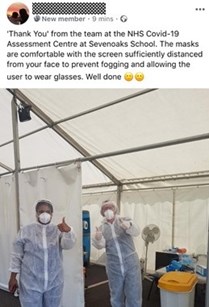“Man learns little from success, but much from failure.”
Arabic Proverb
The dire warnings from businesses stretched to the limit by the freeze on normal operations are shaking the lockdown resolve across Europe and America and we should expect soon in the United Kingdom. Countries such as Belgium, which has suffered the worst death rate per head of population, are tentatively opening their businesses: everyone knows that there is only so long that conventional businesses can exist in a state of deep freeze.
However, it will still be many months before a vaccine is generally available, even with Bill Gates putting his shoulder behind the production wheel. So, precautions will have to remain well into the future.
Businesses which are not prepared to learn from this experience are most at risk. Just as Kodak disappeared, when it could see the challenge of digital photography approaching but did nothing to respond, so will those who do not employ entrepreneurial skills and vision in order to learn from this mess.
So, in this commentary we look at some of the opportunities to change, and how entrepreneurial spirit is needed to carry them through.
 There are many signs of entrepreneurial spirit already evident at an individual level. One only has to consider the huge number of local enterprises which have turned their hands to the production of PPE (Personal Protective Equipment), of which the image alongside featuring an enterprise set up by Michael Gemmell-Smith, an old friend of the station, is a typical example.
There are many signs of entrepreneurial spirit already evident at an individual level. One only has to consider the huge number of local enterprises which have turned their hands to the production of PPE (Personal Protective Equipment), of which the image alongside featuring an enterprise set up by Michael Gemmell-Smith, an old friend of the station, is a typical example.
As we reported on 14 April, there is also widespread evidence of companies adjusting to WFH (Working From Home), but also some big contrasts within the same sectors. Some businesses can make the change, others can’t.
But this is not just a three-month break from reality - those who can adjust are learning that they don’t need large offices with accompanying long and expensive leases and high business rates. They don’t need disaster backup facilities to anywhere near the same extent as at present. They don’t need to require their employees to spend up to three hours a day travelling in unproductive time wasted, as we illustrated last week in this commentary.
What they do need is flexible and responsive management: not just to put the logistics in place, but also to monitor productivity and service levels in the new environment - because customers will quite rightly not tolerate poor service. That’s why it’s just absurd for major business helplines to deny good service on the basis of the virus emergency: but this is commonplace at the moment.
Meanwhile, wherever possible service will continue to need to be provided with a minimum of physical interaction. Of course, the tech giants have become expert at doing just that and are ‘cleaning up’ in a major way during this crisis. But all businesses can do it to some extent: many restaurants, bars and shops can and are changing to ‘take away’ and ‘delivery’ business models, and many others adjusting to remote working.
The key areas to get moving are manufacturing and trade, and this is where the Government must focus its attention. It will be interesting to see how the lockdown release strategy is structured, particularly in view of the fast-approaching deadline for the Brexit transition period.
Competition will undoubtedly force through these necessary changes in business models. Free-market capitalism may have a lot of critics, but it does impose ‘survival of the fittest’ on business. That requires taking advantage of lower costs where they are available, and the opportunity to cut excessive commercial property obligations has to be one of the most evident.
Capitalism also has an efficient way of clearing the decks for those businesses which can’t, or won’t, make the necessary changes: and this process, in itself, often seeds the business successes of tomorrow.
So, we should not despair - we will emerge leaner and fitter as a result of this experience. Human enterprise is a powerful motivator, and it starts young. So also, do not despair of the educational challenges for learning online - those who want to focus on building life skills for tomorrow’s world can, and will, do so.
The need to adapt to changing business models applies to media and broadcasting as well. It’s really not good enough for news media trade associations to call for help from the tech giants to fill the void in their revenue - they too must change.
That’s why Share Radio has itself developed a business proposition for free listening to run alongside its new monthly listener subscription, and we encourage companies with large retail customer bases to join with us in adding value to their proposition, just as The Share Centre does today. We’ve put together a simple online slide display, showing the benefits of working with us in this way.
We will emerge from this crisis, this tragedy for so many. As so often in the past, human spirit and enterprise will combine to provide a world better equipped to deal with the challenges of tomorrow, and let’s thank God for that. And, in that context , here’s a link to our short reading of Night Prayer, taken from the Church of England’s ‘Prayers for use during the coronavirus outbreak – but without the psalms.
Gavin Oldham OBE
Share Radio

